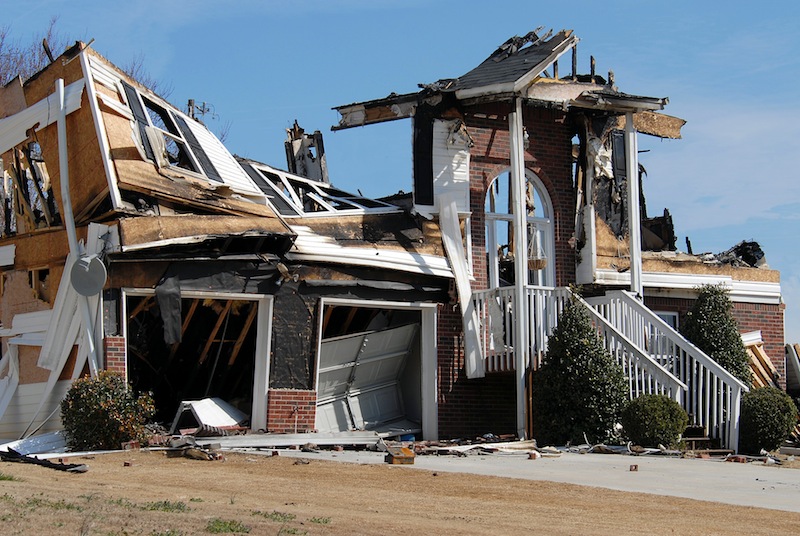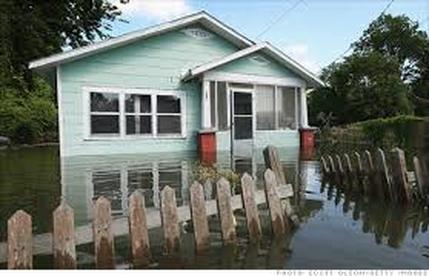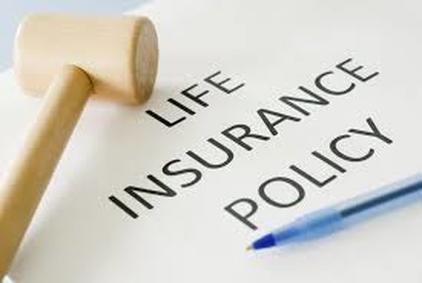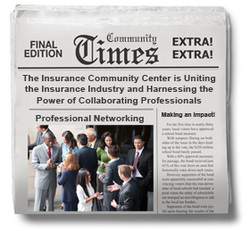|
Is there such a thing as cheap Cape Cod home insurance? There may be a better question. Is home insurance really that expensive? Homeowner’s insurance may very well be the consumer’s best buy when it comes to insurance. There are multiple benefits and features that make the home policy unique. Most everything that the homeowner owns including the dwelling can be covered in some way by homeowner’s insurance. When you think of the magnitude of the coverage afforded by homeowner’s insurance versus the premium paid then you would have to agree that homeowner’s insurance is a very good buy. The rates on property insurance in general, have increased over the last ten years. Much of that has to with increased catastrophes like the hurricanes in Florida. The toxic mold problem that originated out west has also caused premiums to increase on a national basis. The home insurance buyer really needs to focus on a few areas to get the most for the premium dollars paid. Accurate Dwelling Amount – This is the first most critical decision that you will make. The square footage of your dwelling has to be correct in establishing the replacement value of your home. The market value is of little use to you when you purchase insurance to rebuild the structure. Replacement cost is better for homes that have been built within the last 40 years. Check with your insurance company underwriting guidelines. Replacement Cost or Actual Cash Value – This facet of your home insurance policy should be clearly understood. Replacement cost insurance on both your dwelling and its contents means that the insurance company will rebuild or replace your loss with like kind and quality. Actual Cash Value will calculate the replacement cost and then subtract for depreciation. The actual cash value policy is cheaper but you will have to come up with the depreciable amount out of your own pocket. Deductible – Higher deductibles bring your premium down substantially. $500 to $1000 deductibles are common. This is a huge savings to you over the years and is your most valuable tool in lowering the cost.
0 Comments
What is the best homeowners insurance for you? The answer is probably not that obvious to you because most of us have not taken the time to understand our homeowner’s insurance. We would much rather turn that responsibility over to the insurance professionals. There is nothing wrong with that approach but it still leaves you a little bit too uninvolved over a very important insurance purchase. People have a natural fear of the unknown. We like to steer clear of things that are unfamiliar to us. Our insurance is often one of those things that we would rather just avoid. That may come in part from the old days when insurance was purchased under pressure from the insurance agent. That method of sales has just about vanished in property and casualty insurance. People willingly contact agencies about policies and coverage. The agent is more like a consultant these days. The best homeowners insurance is usually purchased when we ourselves have a better understanding of our policy and how we want to be serviced. The insurance atmosphere is much more professional and there are more ways to purchase insurance. Purchasing online or by telephone is becoming as common as purchasing from the local agent.
The homeowner’s policy itself has a couple of integral features and benefits to consider. Buying replacement cost insurance verses actual cash value insurance is one of your most important decisions. Replacement cost homeowner’s policies settle any loss by replacing or repairing your dwelling and its contents with like kind and quality without depreciation. Actual cash value allows for depreciation and expects you to make up the difference as an out of pocket expense. The most important cost savings decision that you will make is the size of the deductible. It makes sense to have as high a deductible as possible on your home policy because of the infrequency of claims. The best homeowner’s insurance for you revolves around how you want to do business, whether to purchase replacement cost or actual cash value, and the size of your deductible. These three areas will lead you in the right direction. Last year the average premium for Buildings Insurance increased by 5% and the average for Contents Insurance rose up 12%. But within the market we've seen some much bigger rises – if you're with MPIUA - Massachusetts Property Underwriting Association, you'll have seen your premium rise by around 20%. So what's going on? Every year we see premiums rising. Surely with so much competition in the home insurance market, you wouldn't expect to see such inexorable rises in premiums? Let's consider the situation more carefully. The cost of repairing and rebuilding houses is a reflection of the rising price of labour and building materials. This means that cost to the insurers of claims under the buildings cover similarly rises. So as their costs rise, so do your premiums. And there's also the indisputable fact that cost inflation also affects the insurance companies own operating costs. Wherever possible, they're bound to add a little extra on for that! Then there's that lovely British weather. Michael Fish could be forgiven for believing we don't live in a hurricane zone, but nevertheless it's a fact that storms, and especially floods, are becoming ever more frequent. Flood damage can be particularly destructive with, according to the Association of British Insurers. And during the last 18 months we have seen particularly destructive floods create headline news at Helmsley in North Yorkshire, Carlisle, and Boscastle in Cornwall. Those events must have cost the insurance companies multi-millions. The other area where costs have been rising is burglary. There seem to be two reasons – firstly burglars are finding pickings easier to come by and move on. Modern family homes are packed with valuable electronic gismos – from laptops to I pods, digital cameras and flat screen TV's. The other reason is that burglars are targeting well-off neighborhoods more and more. Against this background the insurance companies are able to price home and contents insurance down to individual postcodes. If their records show a problem with flooding, or subsidence, or an increasing incidence of burglary in you immediate area, their computers will load your premium to reflect the additional risk. Your no-claims discount will only serve to offset these upward pressures to a certain extent. And don't forget that once you have a five years no-claims record, your discount doesn't increase, it's capped. Thereafter, all the premium increases will land fully in your lap. So what can you do to save money? The most important step by far, is to shop around every year for the best available deal. Maybe it's a chore, but thirty or forty minutes on the Internet (including ten minutes on this web site!) will yield you results. Within that space of time you'll have found the cheapest insurer and, as an online customer, you'll probably have qualified for an additional 10% discount. Then you can always agree to pay by direct debit – that'll also trim off a bit more. Of course there are other things you can do, especially in the arena of home security. Join the local neighbourhood watch scheme, install security locks on your windows, fit external security lighting, up-grade the locks on your doors and get a burglar alarm. Added security will earn you discounts on your insurance but will cost you money to install! Perhaps the added peace of mind alone will be worth the cost. Only the local neighbourhood watch scheme arrives free! The best general rule is don't stick with the same insurance company too long. Keep them on their toes. They have a tendency to take loyal customers for granted. Yes, it really does pay to shop around – try it and prove it to yourself!  Call (508)540-2601 for your Affordable Alternative to MPIUA 'Fair Plan' Home Insurance - Save More It doesn't matter how many times you crawl the Internet for information. When looking for tips on taking out a mortgage, you will always be given this advice: compare mortgage quotes. This is the first and most important rule for would-be homeowners. Always compare mortgage quotes. Unless you do, you cannot distinguish the good offer from the bad. Only when you compare mortgage quotes can you assure yourself that you are getting the best possible deal there is. You need to make plans for deductibles. Yes, they are usually different from state to state. And the rule of thumb is that the more predominant a peril is in a state, the higher the deductibles such a peril will attract in that state. To give you an example, earthquakes are common perils in California and the deductibles for earthquakes are far higher in California than Florida which is more prone to wind and water damages. Well again it depends on the lawyer's experience and specialty. My recommendation would be to find a lawyer who focuses and specializes in personal injury law. Get the lawyers personal track record for success in dealing with insurance companies and has experience and success in the courtroom. Inquire about the law firm's ability to cover the costs of the case as they arise. And, from a personal point of view make sure that your lawyer is approachable and communicates well and regularly with you. Life insurance is no doubt the most important insurance policy that you need to take care of. On the other hand there are many other Factors such as Home Insurance card insurance and insurance on other assets. When you were married you probably didn't even think twice about who would make these insurance payments month after month. But when you are separated you need to be aware of where you have taken the responsibility to make the payments. You need to stop payments on assets that have not come you're away after the divorce and realize where you do have to make payments. Take a day off to work this one out. Get on the internet and use an auto insurance quote comparison website. It is literally a 1-2 minute process and then you can get insurance quotes from a lot of companies. After you found some that are in your price range, just call them and see what's the deal. Is it that hard? Does it seem hard? It takes you 2 damn minutes. To do this, you need to install a lightning detector and protector. Use surge protectors in all your appliances. Don't plug too many gadget in one socket, and when leaving home unplug appliances and put off switches and sockets. I hope that this step by step guide has helped you a little bit, but like I said at the beginning of this article I am no professional expert on this. I know from my own personal experience what my husband and I had to go through and that is what I wrote on. Nothing more, nothing less. Please always get a second opinion and research this topic more because this is one of the most biggest purchases you will ever have to go through in your entire life! Good Luck! When you first buy a home, you may become overwhelmed by all of the extra costs you never thought about having. One of those costs may be home insurance coverage. Young homebuyers may not see the need for such costly insurance, but anyone who has used their home insurance knows exactly how important it is. Many mortgage companies require specific coverage plans. Even if you choose to buy your home, without financing it, you will need home insurance coverage. Take a look at this information to learn more about home insurance plans.
When You Need It You may think home insurance is only good in natural disasters. When a tornado, hurricane, or earthquake damages your home, your plan should cover the damage. However, there are many times you can use your home insurance coverage regardless if there is a natural disaster or not. Consider this scenario: Your hot water heater bursts and no one is home. There is so much water on your floor that your expensive hard wood flooring is completely ruined. With home owner insurance, you would simply be responsible for your deductible. The coverage would pay for the flooring to be replaced and often will even pay for a new hot water heater. Of course, these terms all depend on the type of plan you have, but for the most part, home insurance is beneficially for large as well as small disasters. How To Pay For It Choosing how you pay for your home insurance coverage can be important. Some owners would rather add their insurance right into their mortgage payment. Many banks prefer you to do it this way and are happy to accommodate. Other insurance companies will allow you to pay the premium monthly, every six months, or yearly. Select companies will even offer additional discounts for those who make one yearly payment. Consider these things when setting up your home insurance. You may get a great deal when you choose the right payment arrangement. Each year when our renewal notices come through the post for our home contents insurance and/or home buildings insurance, most of us automatically sign the form and send it back to the insurance company – after all, we already know how much the premiums are going to be. Big financial mistake, and here are 4 reasons why:02539,02568,02535, 02562, 02537, 02553, 02540,
Did You Buy Anything New In The Last Year? If you bought anything new in the last year, say a new television or video recorder, then the value of this new purchase will not be included in the renewal notice you just sent off to the insurance company. Likewise, if you sold anything of value over the last year, and have not informed the insurance company, then you are paying home contents insurance for something you no longer own. Either way, your not paying the right amount of insurance premiums.02631, 02633, 02650, 02659, 02669, 02643, 02653, 02662, 02642, 02651, 02663, 02667, 02652, 02666, 02657, 02554, 02564, 02573, 02575 Did The Costs Stay Static? If you have home contents insurance then you are insuring your personal property for the replacement cost of buying the same thing new. On the other hand, part of your home buildings insurance should cover the cost of labour and materials. Now ask yourself, would the cost of replacing the picture hanging in your living room be the same today as it was last year? If the answer is that it would cost you more, tough luck, you’ll only get paid out what you said the cost of replacing it would be! The same can be said of your friendly builder, would he charge you the same for an hour of his time and for his materials today as he would have done last year? If the answer here is no, then you should be expecting to pay him the difference.02637, 02675, 02664, 02638, 02639, 02641, 02660, 02670, 02672, 02647, 02645, 02646, 02661, 02671, Did The Value Of Your Home Stay The Same? Similar to the above, with your home buildings insurance you need to be asking yourself whether or not the value of your home stayed the same this year as it was last year? You need to be asking yourself this question even if you didn’t do any work to the house – such as building an extension – that would naturally automatically add value to your home.02632, 02636, 02635, 02574, 02543, 02649, 02534, 02649, 02559, 02561, 02562, 02532, 02532, 02664, Is Your House Any Safer Today? Here the question is, have you done anything to your house over the last year that would mean your home would be considered safer today than last year? For example, did you add any deadlocks to your doors or windows? If so, then there’s a very good chance your home contents insurance premium would be reduced, as the security in your house is a major consideration in assessing your premium (along with the crime rate in your neighbourhood, so you may also want to check and see if this has gone up or down also). Keep in mind that time stands still for no man. As such, you need to read your home contents insurance and/or home buildings insurance renewal notices very carefully to make sure that they reflect, as accurately as possible, your life today and not your life of yester-year. Life Insurance – a Small Price to Pay for Peace of Mind
We all reach the stage in life when we wonder whether we need life insurance or not. This isn’t a great decision for any of us – nobody likes to be reminded of their own mortality, after all! But, it’s a decision that comes to us all at some time or other – especially if we have a family to consider. To be honest it’s worth while looking at taking out life insurance at virtually any stage of your life – especially as we reach adulthood and start to amass mortgages and other financial commitments. The fact is that it doesn’t really matter if we have a family to care for or not – if we have any kind of current financial commitments then we need to think about what would happen to them if we were to die out of the blue. And, you have to remember that it doesn’t matter how healthy you think you are – you could die in a car accident or get run over by a bus tomorrow! The thing you have to consider here is what would happen to your financial commitments if you were to die unexpectedly. A lot of people don’t realise that the money they owe on stuff like loans and mortgages doesn’t necessarily pay for itself after their death – somebody will have to take responsibility for its repayment. And, in the simplest of terms you have to think about who would pay for your funeral at the end of the day. Life insurance may be worth thinking about at this stage – it is essential, however, if you have a family to add to the equation. If you have a partner and/or kids then think about how they would cope financially if you did die and your salary died with you. This isn’t just about managing stuff like the mortgage – it’s also all about working out how they would pay for life’s necessities never mind life’s luxuries. If you protect them with a life insurance policy then they could at least cope financially during what would be a very difficult time for them. The key thing to remember with life insurance is that it doesn’t have to cost the earth.Life insurance policies nowadays can be taken out at minimal cost – you really could be paying just a couple of pounds a week to get the right levels of protection. To make things easier most industry experts recommend that you shop around for the best quote as the sector is extremely competitive at the moment. This is easily done – there are loads of web sites out there that can help you sift through competitive quotes so you can find the cheapest policies in just a matter of minutes, for example. This is a great way of getting the life insurance cover you need without spending too much time or money in the process. People spend a lot of money on complicated financial products and it is sometimes difficult to keep track of what products perform what tasks. Many people are not aware of all the financial products that are available or they only know of them vaguely. They may not know how much they cost or the potential benefits they offer. How can consumers make informed decisions on what products they would be willing to buy if they do not have this basic information? This problem can often lead to consumers buying unsuitable of overpriced products simply because they feel they should have some financial protections available but don’t have the details to make an informed choice.
One of the common questions many consumers have is regarding the difference between insurance policies and assurance policies. Put simply, insurance policies cover the costs of an event that might happen while assurance policies will pay out on the occurrence of an event that is certain to happen. Insurance policies only last for a specific period of time. If the event occurs within that time, they pay out, otherwise they are finished. Therefore, if no claim can be made within the term of the policy, they have no remaining value. <b>Guaranteed Payout</b> An assurance policy is different. Assurance policies always pay out. For example, a life assurance policy will generally pay out upon death or upon reaching the age of 65. How does this policy work? Well, they combine two elements; an insurance element, which will pay out if, the person dies early. This will then be used to pay for the funeral or support his family. But then there is another payment made every year and this is the investment portion. The insurance company invests this part of the premium on behalf of the policyholder and when they reach the age of 65, they pay this out. Life assurance policies are therefore often used both as a method of life insurance and as a method of saving for retirement. <b>Do You Need Money Now?</b> If you wish to cash in the investment portion of a life assurance policy early this is generally possible. However, there will usually be hefty penalties added to this so it is unadvisable to cash in early if you don’t have to. The distinction between insurance and assurance is also becoming more blurred as more companies offer both types of policy or add features of one type of policy to their other type to make them more attractive. The distinction is still important so that you know what to ask for and know what kinds of facilities are available for insuring your life and providing for your future. Overweight people are in the firing line again. Life insurance companies are increasing premiums up to four fold for fat people. They've always charged more for those of us who over-eat, but during the last year the penalties have got worse.
In moves to tighten the belts further, the life insurers are lowering the weight limits they use to categorise people. This tougher move means that those who are merely overweight and would have previously qualified for a standard premium, are now penalised with higher premiums – and the premium rapidly rises the more overweight they believe you are. Height and weight are just two of the questions you have to answer when you apply for life insurance. From them, the life company calculates your Body Mass Index and if that exceeds the limits they define as acceptable, they might ask for a doctor's report. In bigger cases they might ask you to have a medical examination. If this confirms that your weight is of concern, then you can expect your premium to be loaded by at least 50% and as much as 400% if you're really obese. Recent research shows that around 25% of applicants will experience problems getting life cover due to their weight. In extreme cases the insurer will even refuse the application. In an acknowledgement of normal middle age spread, the insurance companies do take your age into account when deciding your premium. They accept that people naturally tend to put weight on as they age. If you're young and overweight, however, they'll certainly hit you hard. So overweight and 38 will be hit much harder than overweight and 58. For example, a non smoking healthy man aged 35 asking for £150,000 level cover over 25 years will currently be quoted £18.77 by Scottish Provident but this could easily jump to £35 if he is overweight and up to £47 if he's obese. And obesity is certainly a growing problem. Over the last 20 years obesity in adults has rocketed with more than 60% of men and 50% of women being judged as overweight or obese. And signs are that the problem won't improve. In children aged between 2 and 15, 28% of girls and 22% of boys are overweight. How do you rate on the Body Mass Index? Calculate your own BMI. Note your weight in pounds and multiply it by 703. Divide the result by your height measured in inches Again divide the resulting number by your height in inches The result is your BMI The typical insurance company considers a BMI of between 18.5 and 24.9 to as normal. Above 25 classifies you as overweight. Over 30 and you're obese. To give you more of a fix on what this means for you, here are the BMI's for twelve famous people: Under weight Paula Radcliffe – Marathon Runner - 18.0 Victoria Beckham – Footballers Wife - 17.0 Jennifer Aniston – Actress - 17.5 Normal weight Alan Shearer – Newcastle Footballer - 24.4 Davina McCall – TV Presenter - 20.8 Cilla Black – Presenter - 20.7 Overweight Russell Crowe – Hollywood Actor - 25.6 Ann Widdecombe – MP - 25.1 Charlie Dimmock – Gardening Presenter - 26.0 Obese Norman Schwarzkopf – US General - 30.5 Michelle McManus – Presenter - 34.4 Dawn French – Comedienne - 43.8 Not everyone needs life insurance. The first thing to do is make sure you need it. Life insurance is really meant for your family members or other dependents who rely on your earnings.
<b>Why You Buy Life Insurance</b> You buy life insurance so that, if you die, your dependents can live the same kind of life they live now. Strictly speaking, then, life insurance is only a means of replacing your earnings in your absence. If you don’t have dependents (say, because you’re single) or you don’t have earnings (say, because you’re retired), you don’t need life insurance. Note that children rarely need life insurance because they almost never have dependents and other people don’t rely on their earnings. <b>Life Insurance Comes in Two Flavors</b> If you do need life insurance, you should know that it comes in two basic flavors: term insurance and cash-value insurance (also called “whole life” insurance). Ninety-nine times out of 100, what you want is term insurance. <b>Term Life is Simple to Buy and Understand</b> Term life insurance is simple, straightforward life insurance. You pay an annual premium, and if you die, a lump sum is paid to your beneficiaries. Term life insurance gets its name because you buy the insurance for a specific term, such as 5, 10, or 15 years (and sometimes longer). At the end of the term, you can renew your policy or get a different one. The big benefits of term insurance are that it’s cheap and it’s simple. <b>Cash Value is Trickier</b> The other flavor of life insurance is cash-value insurance. Many people are attracted to cash-value insurance because it supposedly lets them keep some of the premiums they pay over the years. After all, the reasoning goes, you pay for life insurance for 20, 30, or 40 years, so you might as well get some of the money back. With cash-value insurance, some of the premium money is kept in an account that is yours to keep or borrow against. This sounds great. The only problem is that cash-value insurance usually isn’t a very good investment, even if you hold the policy for years and years. And it’s a terrible investment if you keep the policy for only a year or two. What’s more, to really analyze a cash-value insurance policy, you need to perform a very sophisticated financial analysis. And this is, in fact, the major problem with cash-value life insurance. While perhaps a handful of good cash-value insurance policies are available, many— perhaps most—are terrible investments. And to tell the good from the bad, you need a computer and the financial skills to perform something called discounted cash-flow analysis. If you do think you need cash-value insurance, it probably makes sense to have a financial planner perform this analysis for you. Obviously, this financial planner should be a different person from the insurance agent selling you the policy. What’s the bottom line? Cash-value insurance is much too complex a financial product for most people to deal with. Note, too, that any investment option that’s tax-deductible—such as a 401(k), a 401(b), a deductible IRA, a SEP/IRA, or a Keogh plan—is always a better investment than the investment portion of a cash-value policy. For these two reasons, I strongly encourage you to simplify your financial affairs and increase your net worth by sticking with tax-deductible investments. If you do decide to follow my advice and choose a term life insurance policy, be sure that your policy is non-cancelable and renewable. You want a policy that cannot be canceled under any circumstances, including poor health. (You have no way of knowing what your health will be like ten years from now.) And you want to be able to renew the policy even if your health deteriorates. (You don’t want to go through a medical review each time a term is up and you need to renew.) |
better Insurance
|
-
HOME
- Send me a Home Insurance Quote >
- FLOOD Insurance, Massachusetts >
- Cape Cod Home Insurance
- Pay Your Home Insurance Bill Online
- Ordinance or Law Coverage
- How to Prevent a Claim on your Home Insurance Policy
- Videos - Cape Cod Real Estate Tips >
- Cape Cod Massachusetts Arbella Insurance Discounts
- Cape Cod Massachusetts Lloyds of London Home Insurance
- Safety Insurance Discounts for Cape Cod, Massachusetts
- MPIUA - MA Property Insurance Underwriting Association "Fair Plan"
- Cape Cod Massachusetts Home Protection Insurance
- Hurricane Preparedness >
-
AUTO
- Send me an Auto Insurance Quote for Cape Cod, Massachusetts
- BOAT Insurance >
- Cape Cod, MA Dept. of Motor Vehicles
- Cape Cod Massachusetts - Report an Auto Insurance Claim
- Auto Insurance Quote - CAR BUYING TIPS : Auto Insurance for Cape Cod, MA
- InControl Driver Training
- Car Insurance for Cape Cod Massachusetts - Arbella Insurance - Send me an Auto Quote >
- Plymouth Rock - Send me an Auto Quote >
- Encompass Insurance Discounts
- Safety Insurance - Send me an Auto Quote >
- Travelers Insurance Discounts
- Progressive Insurance - Send me an Auto Quote
- LIFE
- OFFICES
- ABOUT US
- Stay Home
- Home Insurance Explained
- Agent Login
- Privacy Policy
- Videos - Cape Cod Real Estate Investing, Taxes & Insurance
- Videos - Cape Cod Coastal Real Estate
- Português
Arthur D. Calfee Insurance Agency, Inc. is a friendly local insurance agency proudly offering Massachusetts, Cape Cod and the Islands. A-Excellent AM Best rating, A+ Excellent by the BBB
Using innovative thinking, cutting-edge tools and expert resources at national and local levels, we deliver the best possible outcome on every policy we manage. Need Home Insurance? Easy, Fast, & Secure Home Insurance. Get Free Quotes 100% Online Now! Available 24/7. Affordable Rates. Cover Your Biggest Investments. Get a homeowners insurance quote, find coverage options. We'll help you understand and customize the right home insurance coverage for you.
Home is where your heart is—along with a healthy chunk of your net worth. Get started today with a free homeowner's quote.
Compare home insurance quotes today and save on protection for your biggest investment. Build a Custom Policy & Make the Switch! Our local underwriting professionals focus exclusively on finding the best home insurance, homeowner's insurance, hazard insurance, investment property insurance, flood insurance, flood zone information, vacation home insurance, second home insurance, auto insurance, collector car insurance, business insurance, general liability insurance, property insurance, professional liability insurance, contractor's liability insurance, worker's comp insurance, key man insurance, whole life insurance, term life insurance, group or personal disability, & long-term care insurance policies to patrons in the following Cape Cod, Massachusetts towns, communities and villages: Barnstable, Bourne, Pocasset, Brewster, Buzzards Bay, Centerville, Chatham, Cotuit, Craigville, Dennis, East Dennis, Eastham, Falmouth, East Falmouth, Hatchville, West Falmouth, North Falmouth, Woods Hole, Harwich, Hyannis, Hyannisport, Martha's Vineyard, Nantucket, Marstons Mills, Mashpee, Orleans, Osterville, Provincetown, Sandwich, Sagamore, Sagamore Beach, Truro, Wellfleet, Yarmouth, and Yarmouthport. Real-Time Pricing. Insurance coverage: Wind Damage, Fire Loss, Water Damage. Protect your home and belongings. Low Rates For Your Best Options to Save Money On Great Coverage! Get a quote today. Home insurance helps protect your house and your family.
Using innovative thinking, cutting-edge tools and expert resources at national and local levels, we deliver the best possible outcome on every policy we manage. Need Home Insurance? Easy, Fast, & Secure Home Insurance. Get Free Quotes 100% Online Now! Available 24/7. Affordable Rates. Cover Your Biggest Investments. Get a homeowners insurance quote, find coverage options. We'll help you understand and customize the right home insurance coverage for you.
Home is where your heart is—along with a healthy chunk of your net worth. Get started today with a free homeowner's quote.
Compare home insurance quotes today and save on protection for your biggest investment. Build a Custom Policy & Make the Switch! Our local underwriting professionals focus exclusively on finding the best home insurance, homeowner's insurance, hazard insurance, investment property insurance, flood insurance, flood zone information, vacation home insurance, second home insurance, auto insurance, collector car insurance, business insurance, general liability insurance, property insurance, professional liability insurance, contractor's liability insurance, worker's comp insurance, key man insurance, whole life insurance, term life insurance, group or personal disability, & long-term care insurance policies to patrons in the following Cape Cod, Massachusetts towns, communities and villages: Barnstable, Bourne, Pocasset, Brewster, Buzzards Bay, Centerville, Chatham, Cotuit, Craigville, Dennis, East Dennis, Eastham, Falmouth, East Falmouth, Hatchville, West Falmouth, North Falmouth, Woods Hole, Harwich, Hyannis, Hyannisport, Martha's Vineyard, Nantucket, Marstons Mills, Mashpee, Orleans, Osterville, Provincetown, Sandwich, Sagamore, Sagamore Beach, Truro, Wellfleet, Yarmouth, and Yarmouthport. Real-Time Pricing. Insurance coverage: Wind Damage, Fire Loss, Water Damage. Protect your home and belongings. Low Rates For Your Best Options to Save Money On Great Coverage! Get a quote today. Home insurance helps protect your house and your family.
Testimonials & Endorsements for the Best Insurance Agent on Cape Cod, MA
PHONE: (800) 479-2601 CUSTOMER SUPPORT & SERVICE
Please note: The above is meant as general information to help you understand the different aspects of insurance. This information is not an insurance policy, does not refer to any specific insurance policy, and does not modify any provisions, limitations, or exclusions expressly stated in any insurance policy. Descriptions of all coverages and other features on this page are necessarily brief; in order to fully understand the coverages and other features of a specific insurance policy, we encourage you to read the applicable policy and/or speak to an insurance representative. Coverages and other features vary between insurers, vary by state, and are not available in all states. Whether an accident or other loss is covered is subject to the terms and conditions of the actual insurance policy or policies involved in the claim. References to average or typical premiums, amounts of losses, deductibles, costs of coverages/repair, etc., are illustrative and may not apply to your situation. We are not responsible for the content of any third-party sites linked from this page.
© 2024 Copyright, Arthur D. Calfee Insurance Agency, Inc.
Calfee Cares.® Privacy Policy
Calfee Cares.® Privacy Policy















 RSS Feed
RSS Feed











